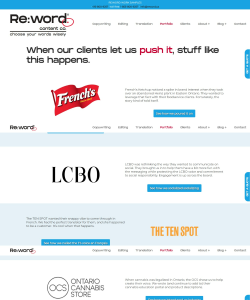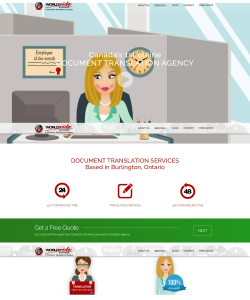Korea is one of Asia’s most significant cultural and financial centers, making it an excellent place for business opportunities. Unfortunately, some challenges exist when doing business in Korea, with the language being one of the most difficult obstacles.
Luckily, many professional Korean translation services can help you forget these obstacles and focus on your business.
With so many Korean translation services on the market, it can be overwhelming to make a decision, so we put together a list of the best options for you to check out below:
1. Translate Hub
The first on our list, TranslateHub.com is a Korean to English translation service with an excellent reputation and plenty of experience within the translation industry. In addition to general translation services, TranslateHub.com offers localization, which businesses should consider if their target demographic includes foreign consumers.
2. The Word Point
TheWordPoint.com is synonymous with excellence within the translation industry. Customers rave about the service of this company, so keep them in mind when looking for a Korean translation service.
3. ReWord
Reword.ca is a fantastic Korean translation option for customers looking for a company with experience in multiple fields of business. Their specialties include industries like finance, tech, marketing, and more.
4. Genius Translation
Our next Korean English translation service is GeniusTranslation.com. Customers looking to translate English to Korean audio should consider this option, as they specialize in many audio/visual fields, such as voice-over and subtitles.
5. Worldwide Express
Last but certainly not least, Worldwideexpress.ca is yet another fantastic option for a Korean translation service. GlobalWords.ca has extensive experience in the medical and financial industries, making them a good choice for those needing Korean financial translation or any translation in the medical field.
Why use a Professional?
Accuracy
Translation apps are convenient and, admittedly, pretty cool. Do you know what they aren’t? Accurate.
The human aspect of language is vital, mainly when translating from a different language, so spend a little bit extra to get the best results when translating something you need to be done correctly.
Language Difficulty and Dialects
Korean is a complex language with a very different alphabet and completely different roots than the languages of the West. Professional translators are usually native or fluent and understand these complexities. In addition, professionals are familiar with dialects, of which Korea has nine.
Localization
Localization is a service that takes your source material and makes it fit for the Korean culture. Many translation companies offer it in addition to standard English to Korean translation.
Localization is invaluable across all industries, but it’s absolutely essential in others. For example, those in the entertainment industry will need to work with a company that offers localization services to best reach their target audience.
Choosing a Service
Here are some factors to consider when deciding on a translation service:
Turnaround Time
Depending on your schedule, different companies can translate your material faster than others. Some companies can offer even faster turnaround times for an increased fee.
Regardless, it’s best to get your source documents translated from English to Korean as soon as possible.
Price
Prices vary within this industry, but they shouldn’t stray too far from the standard of $0.06-$0.16 per word. Make sure you’re getting exceptional service if you’re paying more to translate English to Korean because fantastic options exist within this price range.
Other Languages
Most professional translators can translate Korean into many other languages (e.g., translate Korean to French, translate French to Korean) in addition to translating Korean to English or English to Korean.
Specialties
Some companies are experts in specific fields of translation, including medical, financial, and tech translation, all of which are large industries in Korea.
Certifications
Fluency in Korean and your source language should be the minimum qualification for any translator you hire. Still, there are many certifications that translators can receive within the industry.
Not all certifications are created equal, but certifications from a national government or an ISO certification can ease your mind about translation service quality.





